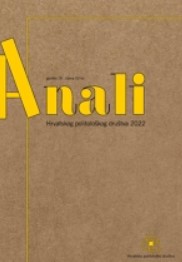DEPOPULATION AND ELECTORAL PROCESS: VOTING FROM ABROAD IN BOSNIA AND HERZEGOVINA, SERBIA, AND MONTENEGRO
DEPOPULATION AND ELECTORAL PROCESS: VOTING FROM ABROAD IN BOSNIA AND HERZEGOVINA, SERBIA, AND MONTENEGRO
Author(s): Slaviša Orlović, Despot KovačevićSubject(s): Government/Political systems, Electoral systems, Politics and society, Comparative politics, Migration Studies
Published by: Hrvatsko politološko društvo
Keywords: Elections; voting from abroad; participation; migration; Bosnia and Herzegovina; Serbia; Montenegro;
Summary/Abstract: Depopulation caused by emigration and negative natural growth is a feature of all societies and states states in the post-Yugoslav space. Migration, as one of the causes of depopulation, results in problems in the fundamental issues of building a democratic society and state. The implications of depopulation are multiple on political processes, and important effects are visible in the elections in these societies. The subjects of analysis in this paper are different approaches to regulating the voting rights of emigrants in electoral processes in the political systems of Bosnia and Herzegovina, Serbia and Montenegro. These countries are the best examples of three different models of regulation of electoral processes, and they are good examples of mechanisms and shortcomings for exercising the right of emigrants to vote. In this regard, the first open question is the number of eligible voters and the effective number of voters in these countries. In these three countries, we encounter out-of-date and insufficiently accurate voter lists, which are the product of poor administration and the constant change in the number of inhabitants, which is insufficiently monitored. Another important issue that we analyze is the voting right of emigrants, where we come across different models and (in) possibilities to use the right to vote. Through the analysis, we show different solutions and their implications on the election process. The analysis of different approaches in the regulation of the right to vote of emigrants shows a number of dilemmas in the basic exercise of the right to vote, and often discriminatory treatment of voters outside the country. The third level of analysis is the analysis of the overall participation of emigrants and their participation in political and electoral processes through electoral cycles that show trends in this area.
Journal: Anali hrvatskog politološkog društva
- Issue Year: 2022
- Issue No: 19
- Page Range: 89-108
- Page Count: 20
- Language: English

